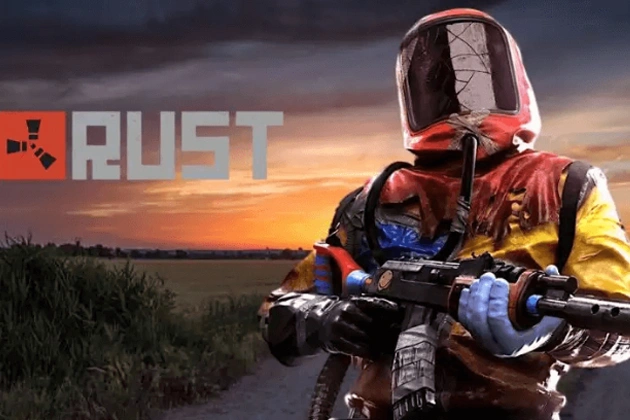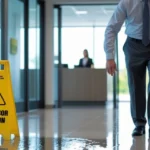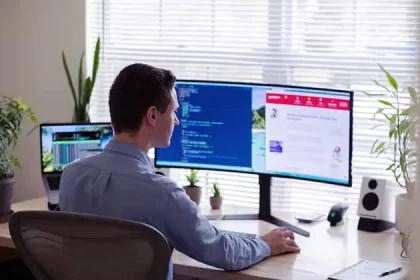Are you playing Rust and curious how some players get so good at building, surviving, and winning fights?
It’s not just about long hours in the game. Many players use smart methods and outside tools to make their gameplay smoother, more fun, and more productive.
Let’s talk about how these tools support strategy and make playing Rust feel more efficient and creative.
Why External Tools Help in Rust
Rust is already packed with survival challenges. You have to gather resources, build strong bases, manage inventory, fight off enemies, and keep an eye on every detail. This can feel like a lot to handle. That’s where external tools come into the picture. They help you plan, stay organized, and make better choices while playing.
By using these tools, players often feel more prepared. Whether it’s figuring out where to place a base, understanding loot systems, or managing team communication, these tools can give players confidence. It becomes easier to enjoy the game when you don’t feel rushed or confused.
Base Planning and Building Tools
One of the most popular strategies players love is planning their base before jumping into the game. Some tools let you create a full base layout from scratch, where you can experiment with design and see if everything fits well. This means no waste of time or materials once you’re in the server.
These planners often show how strong the base would be in actual combat and how much material it will take. This helps players save resources and time. You also get to try out new ideas and get more creative with how you protect your loot.
Map Tools for Smarter Navigation
Rust maps are large, and knowing where everything is can make a big difference. That’s why some players use tools that show map layouts. These help you locate important spots like monuments, caves, or safe zones. You can mark places, track routes, and even plan where to set up your base based on traffic patterns.
These tools are often used during offline time, just to get a better feel for the area. You won’t miss out on loot-rich zones or get caught in crowded areas if you plan things early. It also makes travel safer and smarter when you know where you’re going.
Calculators and Crafting Helpers
Crafting in Rust can feel like a math test sometimes. You need to remember how much metal or scrap you need for certain items. That’s why players use calculators to figure this out quickly. Instead of guessing or wasting materials, you can enter what you need and instantly know the exact cost.
These tools make it easier to prepare before heading into a fight or when raiding. You don’t have to keep checking blueprints or guessing what to bring. Everything is already planned and packed. This makes gameplay feel smoother and gives more time for action instead of sorting out items.
Communication Tools and Team Planning
Rust is a team-based game for many players. So, having a way to talk and plan outside the game is helpful. Players often use outside tools to share maps, mark raid targets, or even plan base builds together. These tools let team members stay in sync, even when not in the game.
Being able to plan offline makes in-game time more productive. Your team can get in, build fast, and take control. Everyone knows their roles and what to bring. That’s one reason why organized groups tend to do well in Rust.
Video Recording and Review
Some players record their gameplay and watch it later. This helps them understand what went well and what to fix. It’s a simple way to get better. They can see how they moved, where they missed shots, or if they forgot something important during a raid.
This method builds self-awareness. Just like in sports, watching your match helps you improve. Players who do this often say it helps them build better habits, like aiming faster or placing traps at the right time.
Loot Trackers and Inventory Helpers
Looting is a big part of Rust. But it’s easy to forget what you picked up or where you stored it. Some external tools help with tracking loot or managing storage. This helps keep your base organized and makes crafting a lot faster.
You can check what’s missing, what to farm, and how to balance your supplies. With this kind of tool, players often feel more in control. They don’t waste time looking through boxes. Everything is labeled and easy to access.
Raid Simulators and Battle Practice
Rust fights can be intense, and staying ready can make a big difference. That’s why some players like to practice battle steps outside the game. They use tools that show fight settings or raid setups in a test-like mode. It’s a type of practice that helps you think faster and stay relaxed when real fights happen.
Some tools even include smart vision helpers that let players train with clear direction and timing. These types of precision training hacks are often used by those who want to focus better and react quickly. Many use them to achieve mastery in Rust with precision ESP hacks, helping them stay alert during close fights or hidden loot hunts. These hacks guided the player, making it easier to plan perfect moves at the right moment without losing focus.
This kind of preparation builds muscle memory and removes guessing. Players who use this kind of practice often feel steadier during real raids. It’s a smart way to build timing and smooth out rough spots — all while playing fair and with a good mindset.
Sharing Strategies and Building Online
Many players also use forums or tools to share their own base designs or strategies. These shared ideas help the whole Rust community grow. You can try someone else’s build, make changes, and make it your own.
This kind of sharing creates a positive loop. Players help each other, get inspired, and enjoy the game even more. You don’t feel alone — there’s always a new idea to try out.
Keeping Things Fun and Fair
Using external tools doesn’t mean bending the rules. These tools are all about better planning, staying organized, and improving yourself. They keep the game exciting, not unfair. Many experienced players use them not to win easily, but to enjoy Rust more smartly and thoughtfully.
The fun in Rust comes from learning and trying new things. With these tools, players get more time to enjoy what they love — building strong bases, fighting smart battles, and exploring the map with purpose. These small supports outside the game help players grow inside the game.
Why Smart Planning Always Wins
At the end of the day, good planning makes a big difference in Rust. It’s not about who clicks faster, it’s about who thinks ahead. These tools help with that. They don’t take away the challenge. They just give players more control, better ideas, and smarter steps forward.
And that’s the fun part: you feel proud of what you build, how you survive, and how well your team works together. Everything feels clearer and doable.
Final Thoughts
Playing Rust is always more exciting when you have smart strategies. And using external tools is one way players make their game smoother and more fun. From base planners to loot calculators, from maps to raid practice tools, each one helps in its way. They support better thinking, stronger teamwork, and more confident decisions.
So next time you play, try using one or two of these tools. They don’t change the game — they help you play it better. You’ll notice how much more you can do with the same effort, just by being a little more prepared.










